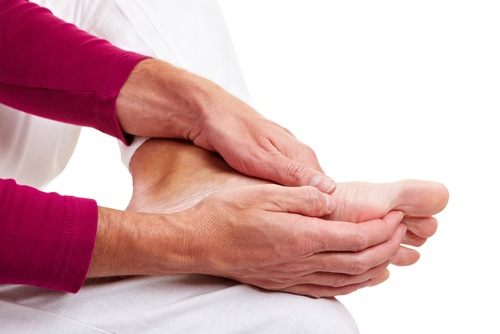Your feet says a lot about you and your overall health
As we age, regular foot care becomes more important than we think. Often our feet are the most neglected part of our body and tasks like foot care is forgotten easily. Hence it is time to give your feet some care that it deserves for your overall well being.
To keep your ageing feet healthy and reduce the risk of health issues caused indirectly by foot, here are the seven essential foot care tips that you should make part of your routine.
- Keep them clean and dry – Good foot hygiene is necessary to prevent fungal infection, viral and bacterial infections. Bathing everyday doesn’t mean your feet are getting cleaned. Routine foot cleaning needs to happen outside bath. Making a regular habit of wiping your feet with a warm towel and then pat them dry before going to bed will not only promote better sleep but also keep them clean.
- Moisturisation is a must – Ageing can make your skin sensitive. From time to time your feet may feel dry and itchy due to lack of moisture. Dry skin can lead your feet to cracking, open sores, itchiness. To prevent your feet from getting dry and flaky you must moisturise it after shower and cover it with breathable cotton socks.
- Trim your toenails regularly – Keeping toenails trimmed regularly is an important element of foot care. If they are overgrown they can cause ingrowth, pain and interfere with stable walking. The best way to trim your toenails is to soak your feet in warm water so that your nails are soften and easier to trim. If trimming your toenail by yourself is a problem you can always book a pedicure appointment and enjoy the spa experience.
- Look out for sores – The common location of bedsores is on the heel. For seniors who spend most of their time on bed or chair continuously. Resting foot on a pillow, mattress or footstool throughout the day can result in pressure and irritation leading the skin tissue to breakdown. To prevent from bedsores you can opt for ‘floating heels’. A soft cushion that will protect your heel and let you suspend your legs to help them move freely.
- Shoe size matters – This is the most essential thing to keep in mind. Often we tend to wear the wrong shoe size unknowingly. Wearing shoes that are too big or too small has an impact on our feet – causing blisters and other foot ailments along with impair mobility. Hence it is recommended that you measure your feet and only then pick your favourite pair. Things to keep in mind when you pick up your favourite pair – close toe shoes should be comfortable, support the arch type, foot width and ankle.
- Do not neglect foot pain – Sometimes a minor pain could cause a serious health hazard. Especially for seniors a quick action will prevent from major medical complications. Our feet are often the first part of the body to show symptoms related to arthritis or diabetic neuropathy. Foot pain could also be affected injuries like plantar fasciitis. Plantar fasciitis is an inflammation of a thick band of tissue that connects the heel bone to the toes. If you are feeling tingling, stiffness or inflammation, do visit the doctor for a thorough check-up.
- Promote Circulation – Chronic illnesses such as diabetes, peripheral artery disease may reduce circulation in the lower leg or feet. Circulation in a senior’s feet can be improved with foot massages, elevating the lower legs when resting, doing light leg-rotation exercises and if need be getting a compression hose prescribed from your doctor.









Very useful information.
My right foot is slightly wider than the left and therefore I always feel discomfort in the right foot when wearing shoes – any remedy, suggestion?
Comments are closed.